If you still think of Chutes & Ladders and Candyland when somebody mentions playing board games with their kids, then you should know that the world of board games has changed a lot since you were a kid. Heck, it’s changed a lot even since you’ve been an adult. There are so many great reasons to play games, particularly if you’re a parent, though some of them work better in theory than in practice.
Here are my top 10 reasons for playing games with my kids, with some game suggestions for each topic.
1. Taking Turns
Theory: This is one of the first things you learn about playing games, that there are times when you get to act, and times when you wait. Drawing cards, moving bits around on the board, grabbing the dice—these are things you shouldn’t be doing unless it’s your turn. Playing games teaches kids that there are appropriate times for everything, and this will extend outside of games to real life.
Practice: My daughters still haven’t learned not to talk when somebody is already involved in a conversation or, indeed, in the middle of a sentence. And while playing games, they also haven’t necessarily learned that when it is your turn, you shouldn’t wander off or start a conversation with somebody else. But they’re getting better at it (I tell myself).
Game Suggestion: Tsuro, or other games in which each turn is pretty short
2. Math Skills
Theory: This encompasses basic skills (adding pips on dice, tallying up scores) and more complex ideas (evaluating probabilities, keeping track of modifiers in Sentinels of the Multiverse). Not every board game requires math, but a vast number of them do rely on at least some basic arithmetic. Playing games will give your kids practice, improving their math skills and setting them up for STEM careers down the road.
Practice: “Dad, add up my score for me.” The trick is being patient enough to let your kids do the math. If I’m impatient to get on with the game or figure out final scores, my kids are more likely to pass off the addition to me. But if I take my time, I find that they’re capable of figuring things out themselves. (Though if they win by 20 points, I’m still going to double-check their math.)
Game suggestion: Numbers League (or nearly any game with numbers)
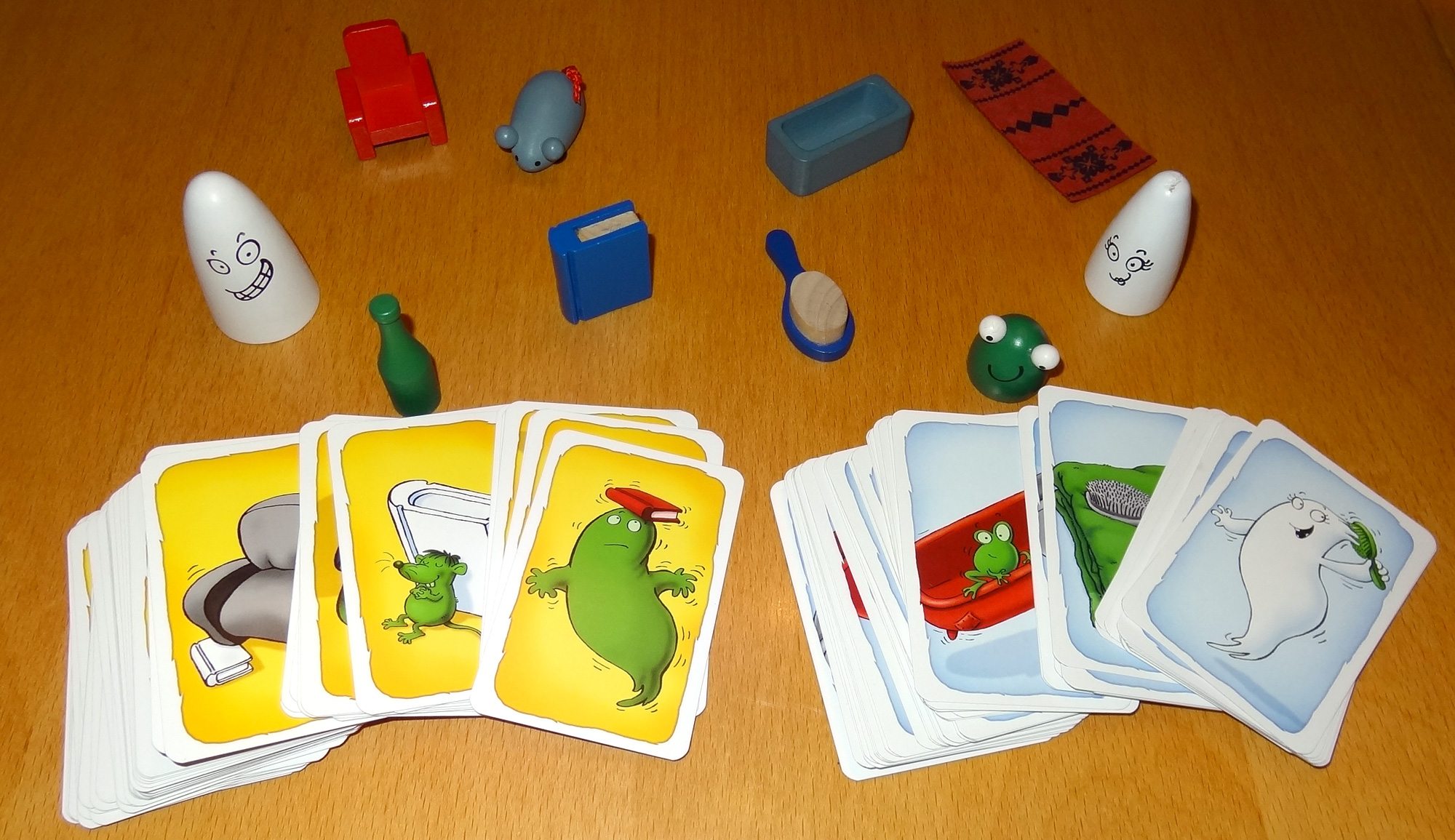
3. Mental Agility
Theory: There are all sorts of benefits to exercising your brain when you’re older, but that doesn’t mean you shouldn’t start young. Playing games is a great way to keep your mind flexible and active.
Practice: You may quickly find that while you may have an advantage when it comes to long-term strategy, your kids outperform you when it comes to mental gymnastics. Maybe if you’re too pathetic they’ll go easy on you.
Game suggestion: Ghost Blitz or Set
4. Thinking Ahead
Theory: More complex games require you to think about not just what you’re doing this particular turn, but what your long-term strategy is. It doesn’t help to capture your opponent’s pawn if it means they’ll take your queen in the next move. The ability to think ahead while playing games will help your kids think ahead in real life, too.
Practice: My kids still struggle with why it’s a bad idea to sit and read a book or play around with toys on a school day before they’ve gotten dressed and eaten breakfast, because they’re not thinking beyond the next five minutes. It’s hard for them to see that in thirty minutes they need to be ready for school. Sigh. However, I have found that asking them to think about what needs to be done can get them thinking ahead without my having to spell everything out. Apparently they can think ahead, but they need to be reminded to do so. I’m hoping a few more plays of Robot Turtles and Twin Tin Bots gets them thinking about multi-step instructions … from me.
Game suggestion: Pirate Dice (or Robot Turtles for younger kids)
5. Actions and Consequences
Theory: This is related to thinking ahead, but is also worth mentioning. Actions have consequences: your actions can have positive and negative consequences on both yourself and on others. Games give you a closed environment in which the cause-and-effect can be more easily tracked, but they help develop a mindset that will help you think about the consequences of your actions in the real world.
Practice: The real world is a bit messier sometimes, and it can be more difficult to follow how a particular action leads to a particular consequence. For instance, why stepping on your sister’s foot causes her to hit you with a book—it’s like some crazy Rube Goldberg machine, right? My approach is to talk my kids through, step by step, and trace back end results to the initial decisions that led to them. That, and to avoid playing games in which the consequences are not results of their decisions, because that removes their agency and teaches that things just happen outside of my control or choice.
Game suggestion: Zooloretto Mini—a series of simple choices affects you and the other players
6. Making Tough Choices
Theory: After your kids understand that actions have consequences, the next step is the ability to make difficult decisions. Games often require you to choose between equally rewarding (or punishing) options, and playing them builds your ability to decide what criteria are relevant and what to ignore, and how to balance risk and reward.
Practice: My kids, like me, want to choose “all of the above” as much as they can, but games force you to pick one or the other. Maybe I need to be playing some more games.
Game suggestion: Tahiti—carrying more stuff means you get fewer actions, resulting in difficult decisions
7. Teamwork
Theory: Cooperative games are on the rise, and they’re particularly great for parents. With these, you can ignore the age-old dilemma: Do I go easy on my kids, or teach them to get used to losing? (See below.) Instead, this new(ish) batch of games is all about working together toward a common objective. Knowing how to make the most of everyone’s strengths is as important in the real world as it is in cooperative games.
Practice: Beware the “alpha-player” syndrome, where a cooperative game becomes a solitaire game with one person directing everyone else’s actions. Note: if you’re playing with your kids, there’s a good chance you are the alpha player, which is fine if your goal is teaching obedience to authority, but less helpful if you want them to learn problem-solving. Also: fighting over who gets to be Blue isn’t a great way to start building a team.
Game Suggestion: Flash Point: Fire Rescue and Forbidden Desert
8. Being a Good Sport
Theory: Nobody likes a sore loser—or a nasty winner, either. Playing competitive games with your kids lets you model how to be gracious, whether you win or lose. They’ll come to see that what you love is the play, not just the win. Teach them the difference between in-game attacks and personal attacks.
Practice: Some kids really like to dish out the trash talk, but then get their feelings hurt if you return it—particularly if you’re actually winning. You can decide whether your kids can keep their feelings in the game or if rivalry will spill over into tantrums and bad behavior outside of the game, but it’s important that kids can see you losing and still having fun.
Game suggestion: Flash Duel—a bit of direct competition can teach a valuable lesson
9. Cutting the Cord
Theory: No, not that cord. The power cord. (Wait, everything’s wireless these days? Well, never mind the metaphor, then.) One of my favorite things about getting my kids into a board game is that, for once, they’re not clamoring to sit in front of a screen. Playing games can provide rich face-to-face interaction that’s hard when your kid is playing Minecraft. (Not that Minecraft isn’t awesome.)
Practice: I’ll admit that there’s still a tug-of-war between the screen and the table for my kids—given the choice between joining in for game night or holing up in their room with my iPad, they’d choose the iPad half the time. But I’ll take half.
Game suggestion: Krosmaster Arena—the giant figurines are such a tactile and visual feast (but just, uh, ignore the whole online play thing for now)
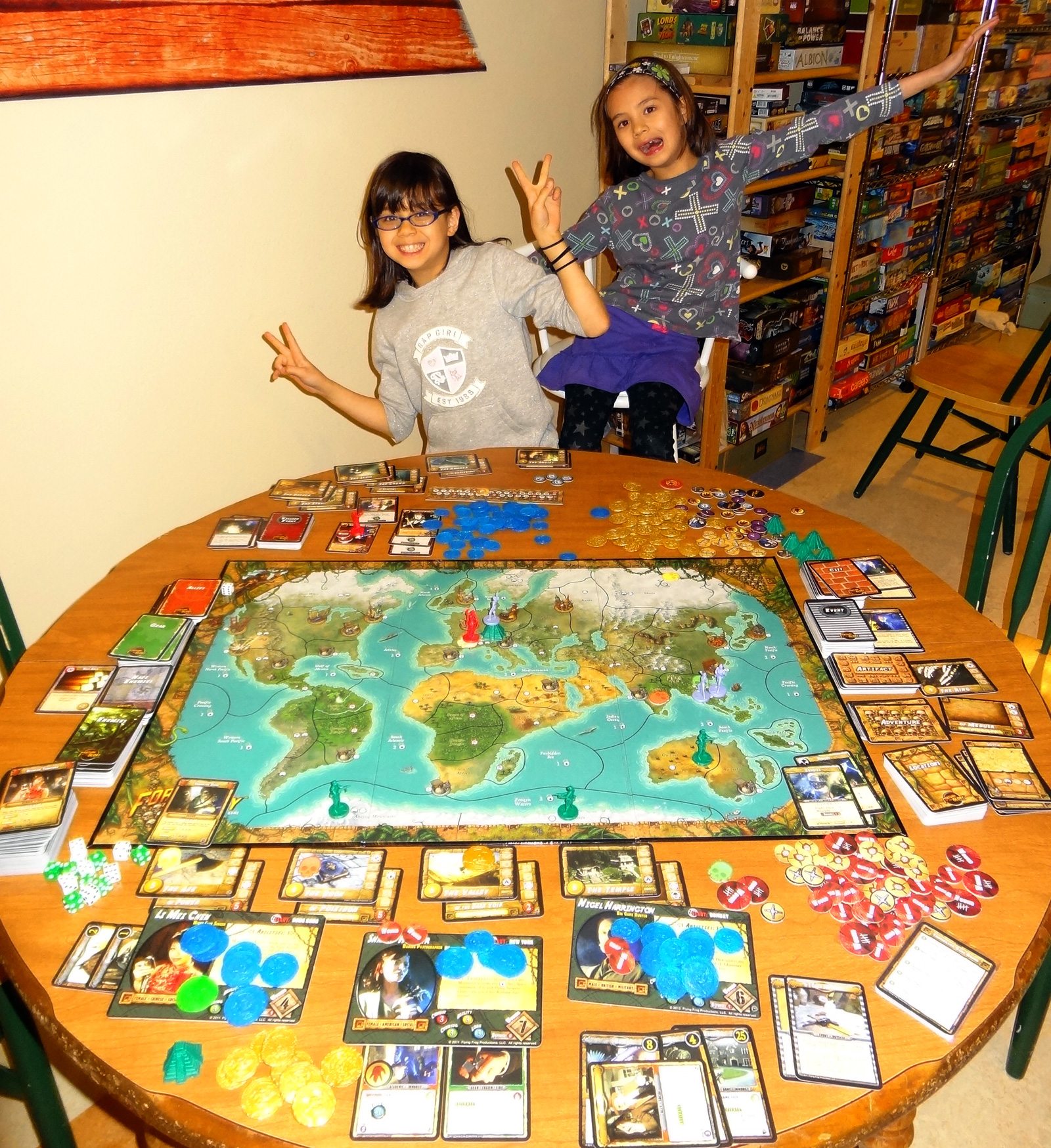
10. Building a Bond
Theory: By getting my kids hooked on games while they’re young, I’ll have a stronger relationship with them. Then when they become teenagers, I won’t have to worry about them getting into trouble somewhere because they’ll want to hang out with me and play games, right? Right?
Practice: I don’t know yet—my oldest is only ten so far, and at that age she still thinks her dad is pretty cool. However, I won’t be terribly surprised if some day she asks me if I’ll get out of the basement so she can play games with her own friends. I haven’t had too much trouble getting other people’s teenagers to think I’m pretty cool because of my board games, but I suppose a key part of that is I’m not their dad. Still, I know a lot of families that continue to play board games together well into adulthood, and I’m hopeful that ours will be one of them.
Game suggestion: Pretty much anything fun that everyone enjoys! (Note: in case you’re wondering, the game pictured above is Fortune & Glory—here’s the full review.)
Bonus reason: Fun!
Plain and simple, playing games is fun, so why wouldn’t you want to share that with your kids?
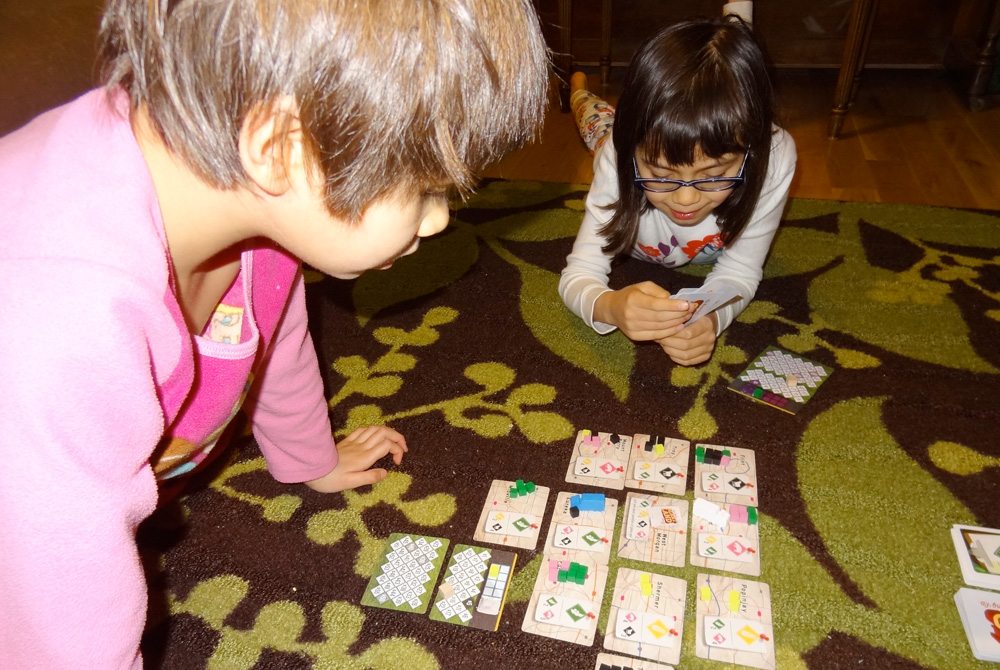
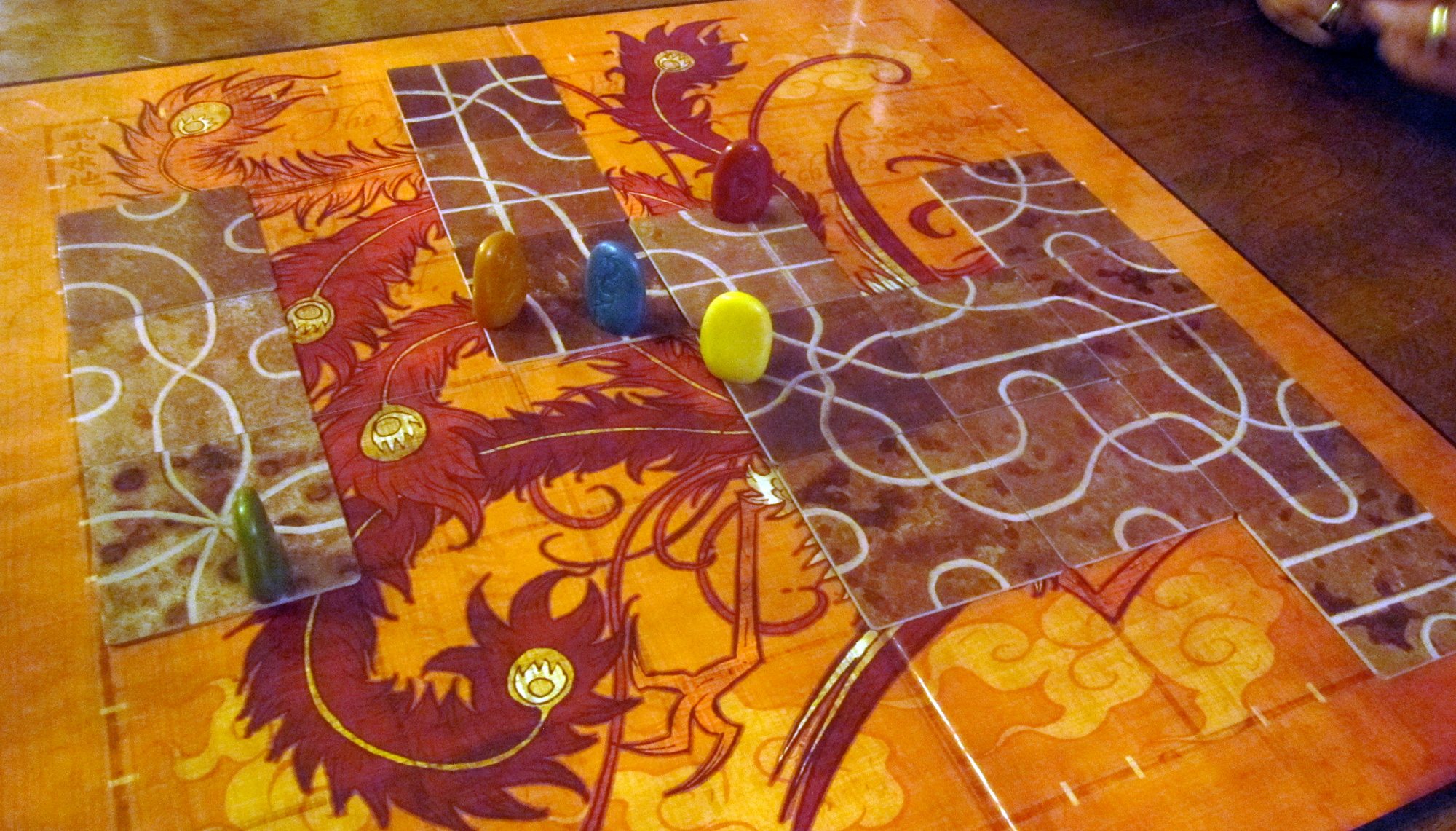

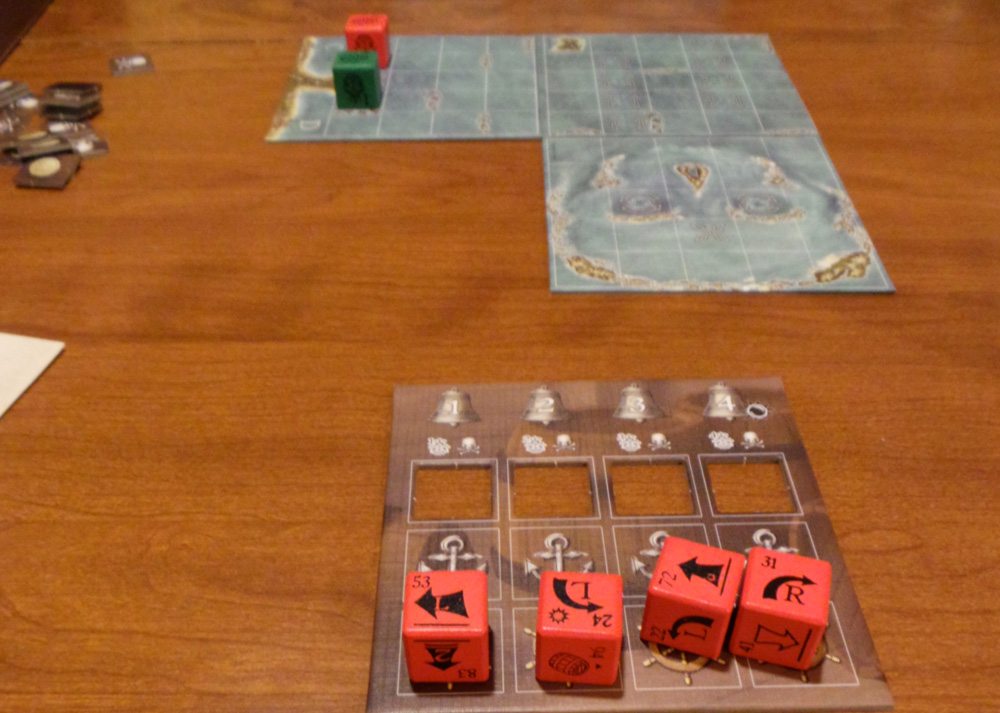
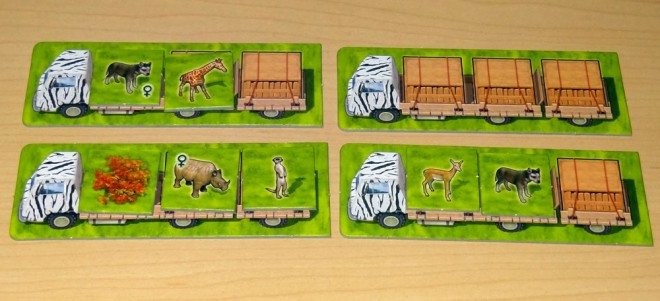

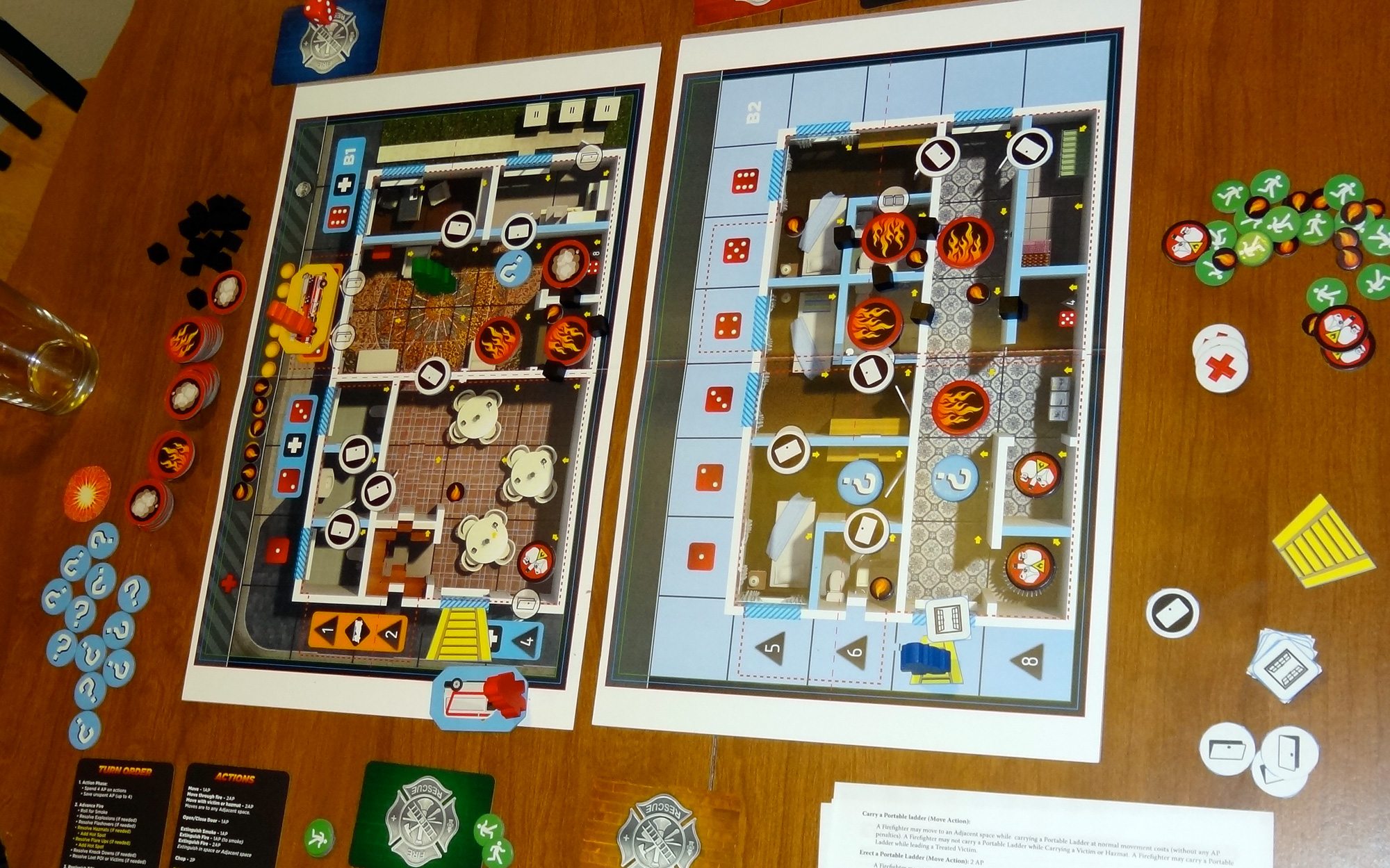
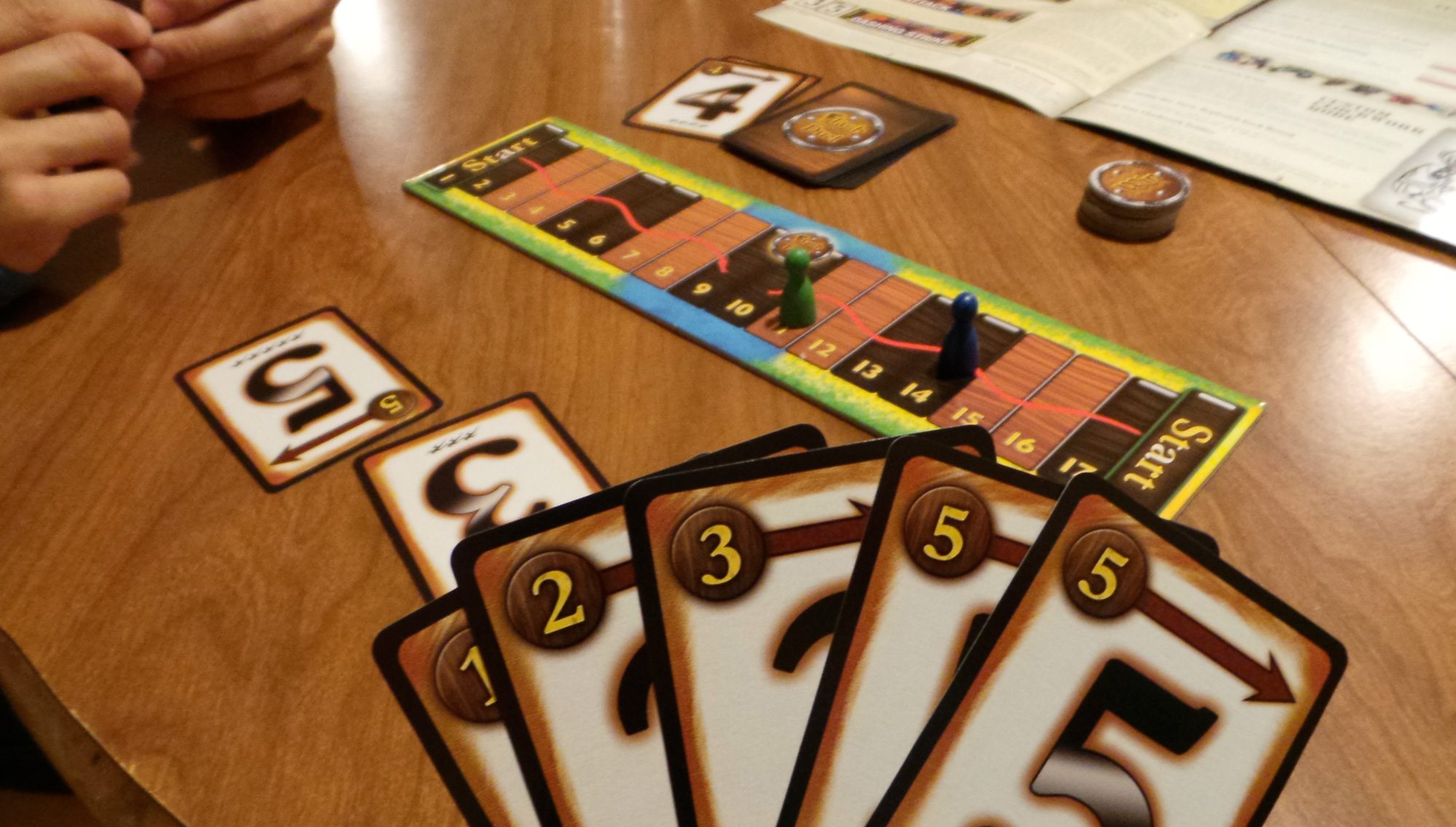
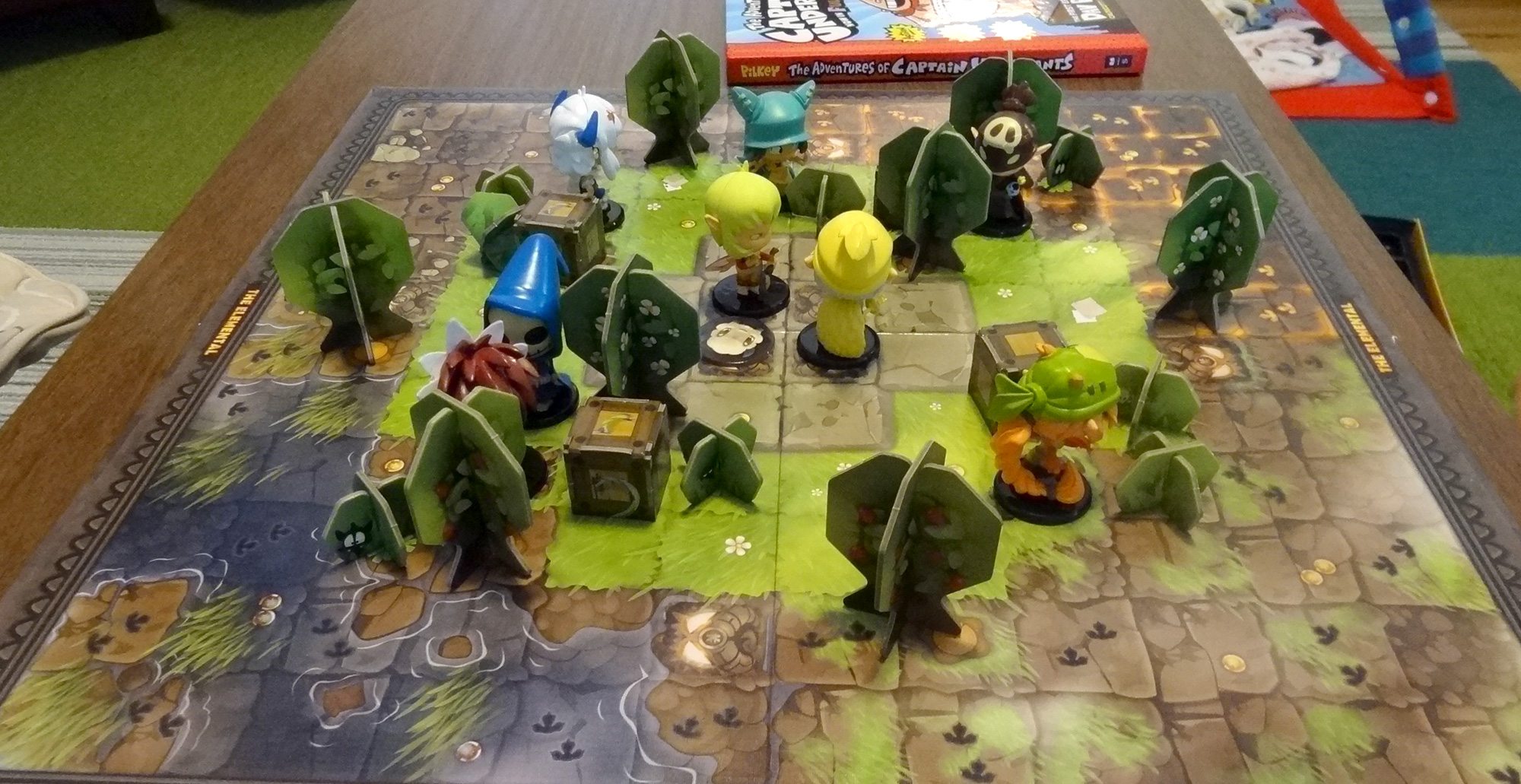


I wish my board game cupboard was as big as the one in the background behind the kids… 🙂
Me too! 😀
My wife has graciously allowed me to take over most of the basement for my board gaming. 🙂
Jonathan’s going to be on a future issue of Game Hoarders on TLC. Watch for it.
Oh, nooooooo…..
It doesn’t say it, but is that last game Johnathan, Fortune and Glory?
Yep, that’s Fortune & Glory. I used that photo in my review of it, but thought it was a fun photo to use here, too.
You almost covered it in #5 and #8, but there is real value in learning how to handle losing (and winning for that matter). A proper understanding that there really is such a thing as a ‘winner’ and a ‘loser’. Also, developing a healthy understanding of competition (rather than falsely saying everyone is a winner).
Totally agree. “Being a good sport” is kind of sugarcoating it. 🙂 Kids need to learn to make mistakes, lose and fail and not just against a computer but in the real world. It’s essential practice for life and board games are a great way to practice losing gracefully.
Yes, I agree. Being a good sport, learning how to lose AND win gracefully—those are big enough topics for their own posts, which I’ve only touched on here. It’s something we’ve talked about at our panels, too—when you play games with your kids (or, for that matter, an adult who is less experienced), do you hold back to give them a fighting chance, or do you just crush them and hope they’ll learn from the experience? Well, depends on the kids. I say you get them hooked on games first, and then you crank up the difficulty level.
What I tell my kids is that I love playing games, and I do play to win—but I have fun even when I lose, because ultimately getting to play at all is awesome. There are too many people who think a game is only enjoyable when they win, and that’s not healthy.
Great piece! I am going to try to introduce gaming to my homeschool group and I’ll be sure to link your article!
We were really interested in Krosmaster Arena but I became nervous after seeing the online component. Any Pokemon type games can be dangerous in the hands of my collector husband. Do you think it’s just fine as a tabletop game?
One more question, what is the game pictured in the last pic?
Krosmaster Arena is an interesting one, and I may do a longer write-up about it later. Honestly, it’s VERY expensive. I backed it on Kickstarter and got a couple of promos but I’m unlikely to keep collecting more and more figurines. I have not played the online version at all—but I’m more of an analog guy myself anyway, and part of the attraction for me and my kids is the huge figurines, which wouldn’t quite be the same online. As with some tabletop games, I suppose this may be one of those games in which a digital version, with all of its automatic tracking and everything, would be *easier* to play, but that doesn’t always mean better. I’m okay with making my kids keep track of hit points and count up damage because—hey—math practice.
That last photo is Fortune & Glory, a huge cliffhanger adventure game set in the 1930s. My full review of it is here: http://geekdad.com/2013/11/fortune-glory/
Such a great article!
My kids are teens now and I feel they’ve benefited from being initiated at a young age to modern boardgames for all your mentioned reasons. In fact, they are still learning life skills through gaming (even though they might not openly admit it).
We may not play as often or as much as we would want since life tends to get in the way, but when we do, memories of ancient and recent gaming sessions surface and it’s as much a time to pause and enjoy the moment, to remember the past with a smile and hope we can play again sooner than later.
Thanks! That gives me hope for the future, too. Looking forward to when my kids are experienced enough to challenge my abilities on a regular basis—they’re starting to beat me at some games, but so far mostly those with a higher luck factor.
Right on! My wife thought I was going to faint from happiness the first time I sat down to play Small World with my 6-year-old daughter. It’s totally helped her with addition and subtraction. We’re still working on being a gracious loser, however, as my 4-year-old winning two consecutive rounds of Tsuro prompted a fit in my 6-year-old and accusations that “she sneaks the game out at night and practices so she’ll be better than everyone else!”
That’s an awesome mental image: a four-year-old sneaking out after bedtime to practice Tsuro.
I’ve withheld playing Small World with my own 6.5 year old… am I wrong? Is it a game that a kid this age can handle? Lots of pieces to lose!
James, I’ve played Small World with 4 yr old and it was fine. She liked stacking all the counters and tiles, a game within the game.
Fortune and glory ?
So my kids WILL still love me and play Scrabble with me when they’re older, right? Right?!?!
That’s what we hope. 🙂 Now, if they hate playing Scrabble with you now, I’m not going to pretend that’s going to magically change when they get older…
Very interesting article, thanks for sharing it. Which Board game appears on the last picture with the big map please ?
Fortune & Glory. Lots of people have asked, so I’ll add a little addendum there…
And the really amazing thing to me, despite our rather prodigious game closet we don’t own any of the games you’ve recommended.
Well, I did try to pick some of my favorites that are a little different from your typical lists but also aren’t totally obscure. I’m sure many of the games you already own would fit the bill just fine as well… But if you needed an excuse to go game shopping, you’re welcome! 🙂
Very Interesting, though your last picture reminded me of another reason why to play games with the kids…
Learnig some geography… Any game with a realistic world map is suitable… I would recommand ticket to ride…
Another reason can be learning economics and the possibility that not necessarily the one in control wins the game a good example is imperial 2030…
Superb game ever.!!! Everyone like to play this kind of games with kids. Thanks for share the list of awesome game. I got the info about game from this post which i don’t know before read this post.
Games are really beautiful, but the question of where you get it
Great post…!!! Great Bunch of game… now i can play and have have great fun with my nephews…
Great article Jonathan. If my wife ever complains that I play games with our kids too much I will say, “But Jonathan Liu says it good for the building their character!” Haha, but seriously, I think you make some incredible points and I want to read this with my wife 🙂
great post…!!! i too like to play games with kids it make me feel good when i spent time with my nephews…!!!
So i started developing kids game and i m developer and recently developed new kids game named Soda Maker a virtual soda making process where you can also learn soda making as instructed in game
There’s an important one missing: Following the Rules!
Well, I suppose that’s partly referred to in “taking turns,” though not entirely. I did also leave out “reading skills” but that goes up there along with math skills—there are a lot of good basic things that are involved in playing games, but I was trying to keep it to 10. 🙂
Great post Jonathan. I’ve been a board game player for a couple of years now and it’s very refreshing to see the educational side of this great hobby through your post. I just thought games are about winning and bragging 🙂
Hello,
I agree with your words, playing games with your kids actually increases their intelligence level or it boosts the confidence level to sort out all their difficult situations in game as well as in real life.